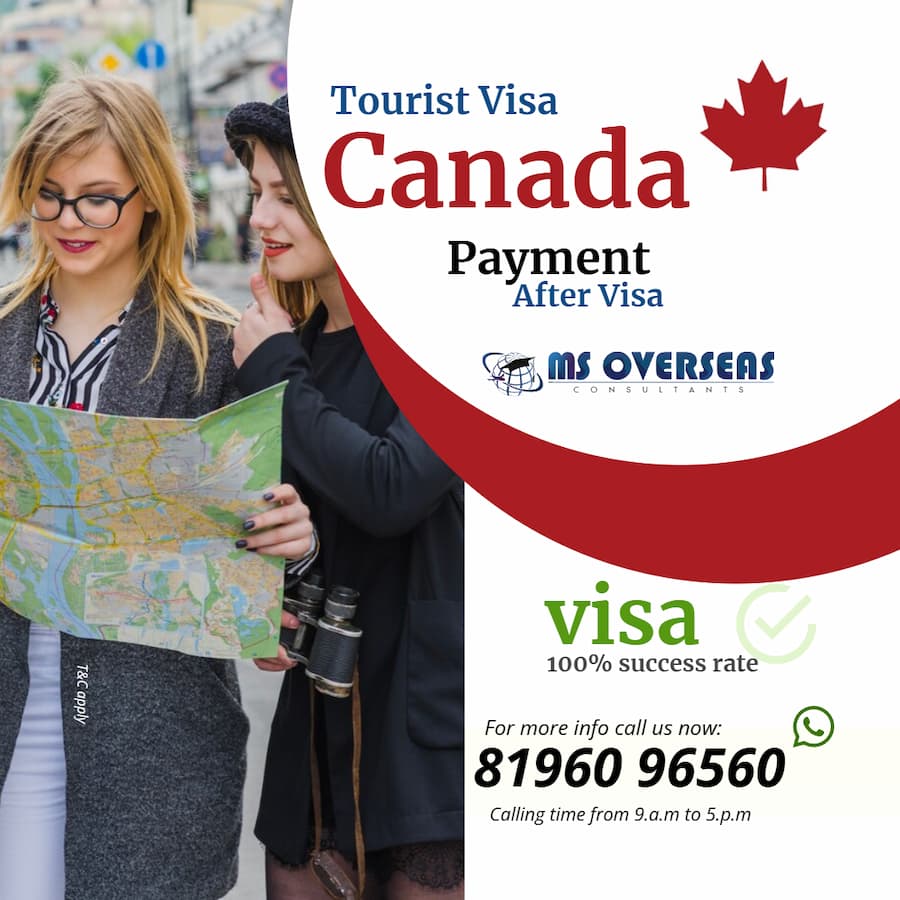Canadian passport holders enjoy visa-free or visa-on-arrival access to 188 countries, placing the Canadian passport among the most powerful in the world. This level of access reflects the country’s strong diplomatic relationships, its robust legal and security frameworks, and its reputation for promoting peace and stability globally. Here’s an in-depth look at the privileges and benefits this affords Canadian travelers, as well as the broader implications. Canadian Passport Power
Global Mobility and Convenience
For Canadian passport holders, visa-free access means significant convenience and cost savings. The ability to travel spontaneously without the need to navigate complex visa application processes is a major advantage. This ease of travel extends to popular destinations in Europe, such as the United Kingdom, France, and Germany, all of which are part of the Schengen Area—a zone comprising 26 European countries that have abolished passport control at their mutual borders. Canadian travelers can stay in the Schengen Area for up to 90 days within any 180-day period without a visa. Canadian Passport Power

Beyond Europe, Canadians also enjoy visa-free access to many countries in Asia, such as Japan, South Korea, Malaysia, and Singapore. In the Americas, countries like Mexico, Costa Rica, and Brazil allow Canadian passport holders to enter without a visa, enhancing opportunities for tourism, business, and cultural exchange. Oceania’s popular destinations, including Australia and New Zealand, also offer streamlined entry processes for Canadians, often providing visas on arrival. Canadian Passport Power
Economic and Business Opportunities
This extensive travel freedom not only benefits leisure travelers but also facilitates international business and trade. Canadian entrepreneurs and business professionals can more easily attend conferences, meet with partners, and explore new markets without the hindrance of visa restrictions. This fosters stronger economic ties and can lead to increased foreign investment and bilateral trade agreements. Canadian Passport Power
Moreover, the ability to travel freely supports Canada’s robust education sector. Canadian students and academics can participate in international exchanges, research collaborations, and educational programs with greater ease. This enhances the global competitiveness of Canadian institutions and contributes to the country’s intellectual and cultural diversity.
Diplomatic Relations and Soft Power
The strength of the Canadian passport is a testament to the country’s successful diplomacy and positive international reputation. Canada is known for its commitment to human rights, democratic values, and multilateral cooperation. Its participation in international organizations such as the United Nations, the Commonwealth of Nations, and the Group of Seven (G7) further solidifies its standing in the global community.
Visa-free access is often granted on a reciprocal basis, reflecting mutual trust and respect between countries. The extensive list of countries that allow Canadians to enter without a visa indicates widespread recognition of Canada’s low-risk status in terms of security and immigration.
Country List for Visa-Free or Visa-on-Arrival Access
Here is a table listing the countries where Canadian passport holders have visa-free or visa-on-arrival access:
| Region | Countries |
|---|---|
| Europe | Albania, Andorra, Austria, Belgium, Bosnia and Herzegovina, Bulgaria, Croatia, Cyprus, Czech Republic, Denmark, Estonia, Finland, France, Germany, Greece, Hungary, Iceland, Ireland, Italy, Kosovo, Latvia, Liechtenstein, Lithuania, Luxembourg, Malta, Moldova, Monaco, Montenegro, Netherlands, North Macedonia, Norway, Poland, Portugal, Romania, San Marino, Serbia, Slovakia, Slovenia, Spain, Sweden, Switzerland, United Kingdom |
| Asia | Armenia (VOA), Azerbaijan (eVisa), Bahrain (eVisa), Bangladesh (VOA), Brunei, Cambodia (VOA), Georgia, Hong Kong, Indonesia, Israel, Japan, Jordan (VOA), Kazakhstan, Kuwait (eVisa), Kyrgyzstan (VOA), Laos (VOA), Lebanon (VOA), Macau, Malaysia, Maldives (VOA), Mongolia, Myanmar (eVisa), Nepal (VOA), Oman (eVisa), Philippines, Qatar, Singapore, South Korea, Sri Lanka (eTA), Taiwan, Tajikistan (VOA), Thailand, Timor-Leste (VOA), Turkey (eVisa), United Arab Emirates, Uzbekistan, Vietnam (eVisa) |
| Americas | Antigua and Barbuda, Argentina, Bahamas, Barbados, Belize, Bermuda, Bolivia (VOA), Brazil, Chile, Colombia, Costa Rica, Dominica, Dominican Republic, Ecuador, El Salvador, Grenada, Guatemala, Guyana, Haiti, Honduras, Jamaica, Mexico, Nicaragua, Panama, Paraguay, Peru, Saint Kitts and Nevis, Saint Lucia, Saint Vincent and the Grenadines, Suriname (eVisa), Trinidad and Tobago, Uruguay, Venezuela |
| Africa | Botswana, Cape Verde (VOA), Comoros (VOA), Egypt (eVisa), Eswatini, Ethiopia (eVisa), Gabon (eVisa), Gambia, Guinea-Bissau (VOA), Kenya (eVisa), Lesotho, Madagascar (VOA), Malawi (eVisa), Mauritius, Morocco, Mozambique (VOA), Namibia, Rwanda (eVisa), Senegal, Seychelles, Sierra Leone (VOA), Somalia (VOA), South Africa, Tanzania (VOA), Togo (VOA), Tunisia, Uganda (eVisa), Zambia (eVisa), Zimbabwe (eVisa) |
| Oceania | Australia (eTA), Fiji, Kiribati, Marshall Islands (VOA), Micronesia, New Zealand (eTA), Palau (VOA), Papua New Guinea (VOA), Samoa (VOA), Solomon Islands (VOA), Tonga (VOA), Tuvalu (VOA), Vanuatu |
| Middle East | Armenia (VOA), Bahrain (eVisa), Georgia, Israel, Jordan (VOA), Kuwait (eVisa), Lebanon (VOA), Oman (eVisa), Qatar, Turkey (eVisa), United Arab Emirates |
Security and Legal Considerations
Maintaining such a high level of visa-free access requires Canada to uphold stringent security measures and legal frameworks. The Canadian passport is equipped with advanced security features to prevent fraud and counterfeiting. Moreover, Canada’s immigration policies and border controls are designed to effectively manage the flow of people while ensuring national security.
Canada’s participation in international security agreements, such as the Five Eyes intelligence alliance, and its adherence to global standards for passport issuance and border security contribute to the trust other nations place in Canadian travelers. This trust is reciprocated, as Canada similarly benefits from the ability to assess and manage risks associated with international travel.
Cultural Exchange and Global Citizenship
The freedom to travel widely supports cultural exchange and fosters a sense of global citizenship among Canadians. Experiencing different cultures, languages, and traditions enriches individuals and enhances their understanding of the world. This cultural exchange is a cornerstone of Canada’s multicultural identity, promoting tolerance, empathy, and global awareness.
Additionally, Canadians abroad serve as ambassadors of their country, building bridges and creating positive impressions. The ability to travel freely thus has a multiplier effect, contributing to Canada’s soft power and its influence on global affairs.
Challenges and Future Prospects
While Canadian passport holders currently enjoy extensive travel freedom, challenges remain. Geopolitical shifts, changes in immigration policies, and global events such as pandemics can impact visa-free access. Canada must continuously engage in diplomacy and international cooperation to maintain and expand these privileges.
Looking ahead, technological advancements such as digital passports and improved biometric systems hold promise for further enhancing the security and convenience of international travel. Canada’s proactive approach to adopting such innovations will be crucial in sustaining its strong passport power.
Conclusion: the visa-free access that Canadian passport holders enjoy to 188 countries is a significant asset, reflecting Canada’s strong international standing and its commitment to global engagement. This freedom enhances economic opportunities, supports cultural exchange, and underscores the country’s influence on the global stage. As the world continues to evolve, maintaining and building upon this access will remain a priority for Canada.

Disclaimer
The information regarding visa-free access for Canadian passport holders to 188 countries is accurate as of the last update in 2024. Visa policies are subject to change and can be influenced by a variety of factors including international relations, security concerns, and changes in immigration laws. Travelers are advised to check the latest visa requirements with the embassies or consulates of their destination countries before making travel plans. The Government of Canada and relevant international bodies regularly update these requirements, and it is the responsibility of the traveler to ensure they have the most current information. This disclaimer serves as a reminder that while efforts have been made to provide accurate and current information, it is essential to verify details with official sources to avoid any travel disruptions.
Get Free Expert Advice: Are you ready to embark on your next adventure? Whether you’re seeking a work permit, tourist visa, or study opportunities in Canada or other countries, we’re here to help! Contact us today to learn how our expert services can simplify your journey and turn your dreams into reality. Reach out now and let’s start planning your future together!
- Canada Citizenship Requirements: Everything You Need to Know
- Canada’s New Visa Rules: What It Means for Indian Students
- Navigating Student Visa Regulations for Studying in the US, UK, Australia, and Canada
Also read:
- Canada’s New Rural and Francophone Immigration Pilots: A Fresh Opportunity for Skilled Workers
- Hundreds of U.S. Visa Appointments Canceled in Colombia: What It Means for Future Travelers
- Ultimate Guide to Dubai Visa Applications for Indian Tourists: Avoid Rejection & Ensure a Hassle-Free Trip with These Key Tips!
- New Canada Immigration Fees Effective December 1, 2024: Everything You Need to Know
- RS Global Immigration Jalandhar: Your Gateway to International Opportunities




